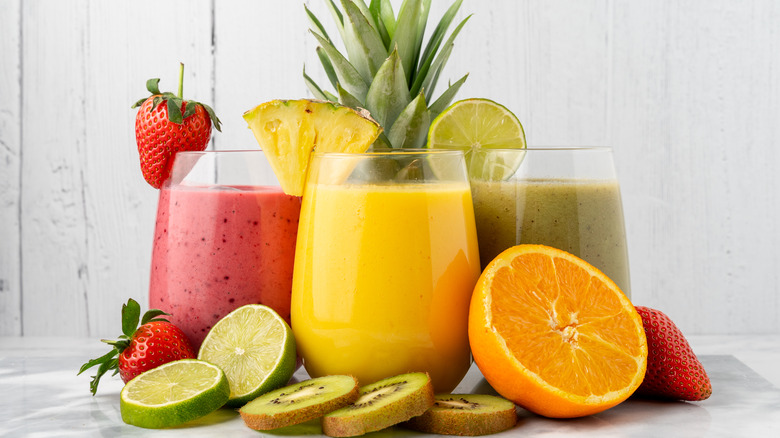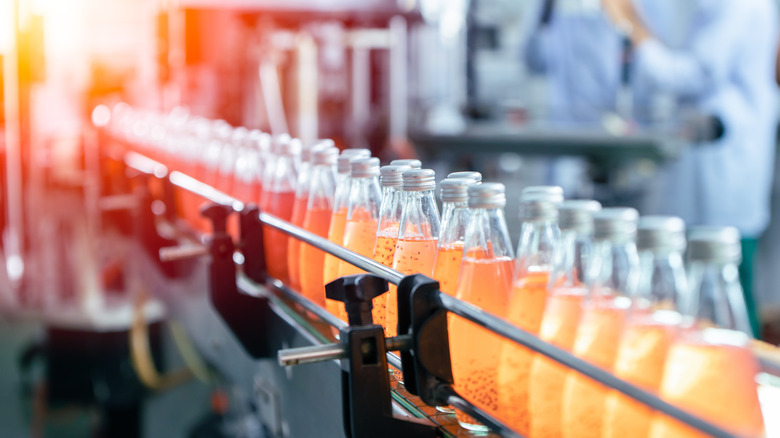The FDA Is Cracking Down On One Ingredient You Never Knew Was In Fruit Juice
On Wednesday, the U.S. Food & Drug Administration announced that it was drafting new guidelines for the acceptable levels of lead in single-strength juices and juice blends. "Exposure of our most vulnerable populations, especially children, to elevated levels of toxic elements from foods is unacceptable," Robert M. Califf, M.D. and commissioner of the FDA, said in the announcement.
The CDC explains that lead poisoning in children can hinder a child's brain, overall development, and behavior and learning patterns. The new rules about lead levels in juices that many children will consume are part of the FDA's Closer to Zero initiative, which strives to reduce childhood exposure to arsenic, lead, cadmium, and mercury to as close to zero as possible. The FDA estimates that the new guidelines will reduce lead exposure in apple juice by 46% and in other juices by 19%. This sounds great, right? Some fruit juices are way more nutritious than we think, so if we can make them healthier, we naturally should.
However, these numbers might not be reassuring to parents who are wondering why there is any lead in apple juice to begin with. When Consumer Reports released the findings of a study regarding the presence of lead in fruit juices in 2019, Welch's' spokesperson told NPR that "naturally occurring elements such as lead and arsenic are present in the soil, air, and water," before adding, "Therefore, they are also found in very low, harmless levels in many fruits and vegetables." This contradicts the CDC's caution that "no safe blood lead level in children has been identified."
Consumer Reports is not impressed with the FDA
The news that the FDA is, as they state in the title of its announcement, "[taking] steps to limit lead in juice to further reduce exposure to toxic elements in foods" might not inspire hope. After all, it does not say that they are enforcing a reduction.
Moreover, some would say that what the FDA is planning on considering is not enough. What the FDA is proposing is to lower the limit of lead from 50 parts per billion to 10 for apple juice and 20 for other varieties. "These proposed levels seem weak, especially when you consider a significant majority of the industry is already meeting them," Brian Ronholm, director of food policy at Consumer Reports, said in a statement (via the Daily Mail). "These action levels seem to give credit for work already done instead of attempting to protect public health."
Part of their issue is that the FDA's lead limit for water is 5 parts per billion. So, there is a standard of lead already enforced, but the proposed restrictions fall short of that. And, as Consumer Reports noted while researching the subject in 2019, most bottled water companies even manage to keep their lead levels at 1 part per billion. Even that, though, could be too high, as Dr. Linda Birnbaum, director of the National Institute of Environmental Health Sciences, told them.
So, obviously, advocates will not be overjoyed by the FDA's latest attempts. After all, some Americans have stopped drinking juice already, so now we wait to see how juice sales will be affected by this.

